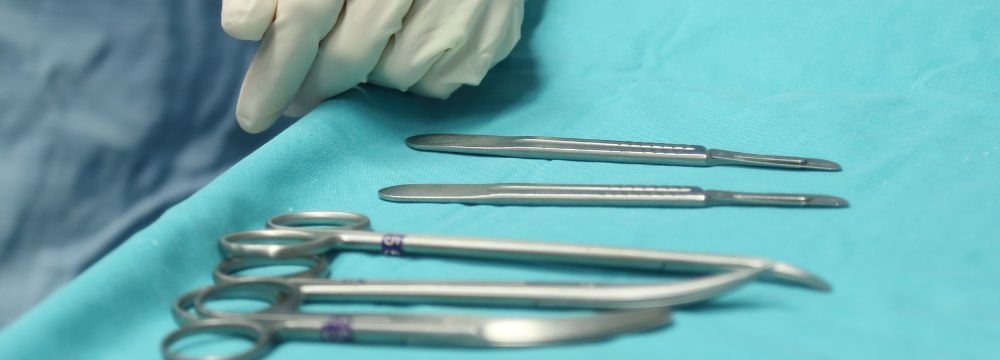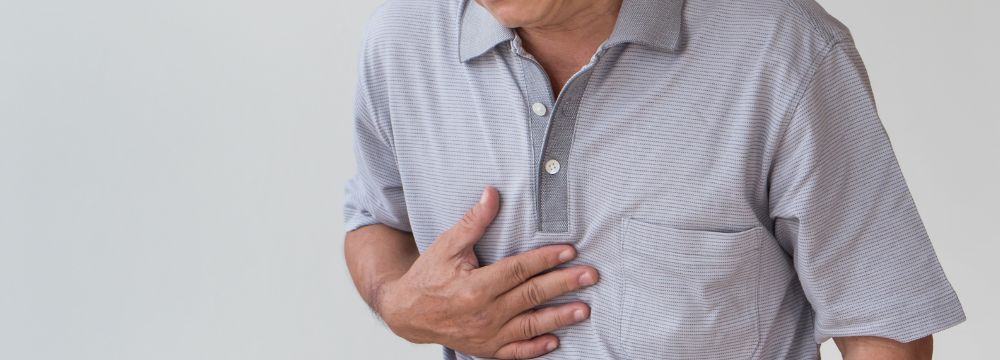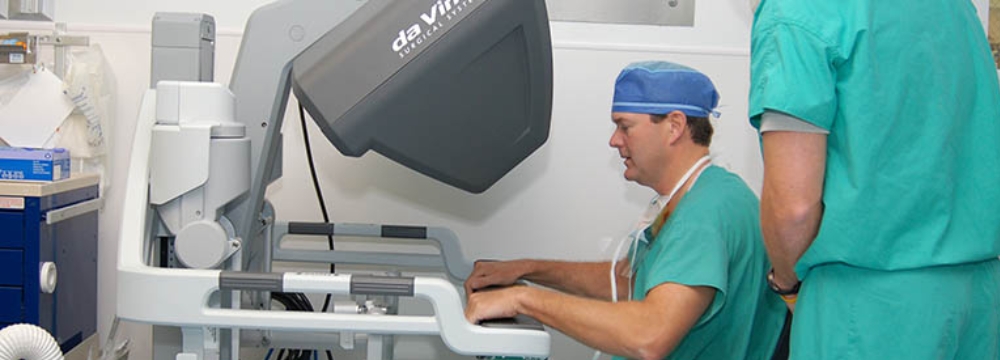Blog Archives
My First Consultation With Dr. Ringold

By Chad Reott, SADI Patient
The decision to get weight loss surgery came to me in an instant. It was a flash. I was sitting in a work meeting where colleagues were discussing a Duodenal Switch (DS) patient who had tremendous results in just three months. When I heard his story, I knew I was getting the surgery. And I was getting the same surgery – DS. I was even going to use the same surgeon – Dr. Forrest Ringold, at SAMPA in Mobile.
Does Everyone With a Hernia Need Surgery?

When we discuss hernias, one thing that often stands out in patients’ minds is that hernias do not heal or go away on their own. The nature of the abdominal fascia does not repair itself as many other organs and bodily structures can with time, lifestyle change, or conservative treatment. Instead, hernias are progressive and tend to worsen by slowly (or quickly) getting larger over time.
It’s also important to remember that hernias themselves are not inherently dangerous. This hole or tear in the fascia does not necessarily compromise your health. However, it does create the possibility of incarceration, where the hernia contents cannot be reduced back into the abdomen, or strangulation, where the incarcerated hernia contents (like fat, small or large intestine, or another organ) get pinched and lose blood flow. These emergencies require immediate care and surgery to avoid the possibility of tissue death. Should the incarcerated and especially strangulated hernia go untreated, the eventual surgical procedure may be far more complicated with less predictable results, and there is a genuine risk of dysfunction or even death.
SAMPA’S Surgeons are 2023 Nappie’s Finalists
 It’s that time of year again, NAPPIE TIME! With great excitement, we are happy to share that Dr. Barry Ballard Jr., Dr. Daniel Lane, and Dr. Forrest Ringold have been nominated for Best General Surgeon, and Dr. Barry Ballard Jr. and Dr. Forrest Ringold are nominated as Best Weight Loss Doc-Surgical! We are so proud of our doctors who have been nominated.
It’s that time of year again, NAPPIE TIME! With great excitement, we are happy to share that Dr. Barry Ballard Jr., Dr. Daniel Lane, and Dr. Forrest Ringold have been nominated for Best General Surgeon, and Dr. Barry Ballard Jr. and Dr. Forrest Ringold are nominated as Best Weight Loss Doc-Surgical! We are so proud of our doctors who have been nominated.
We invite you all to vote and help spread the word about this excellent team of care providers. We appreciate all of your votes, each one truly does make a difference.
Does When You Eat Your Food Matter for Weight Loss?

If you’ve spent any time researching dietary techniques, you’ve certainly come across intermittent fasting. Intermittent fasting has existed for millennia but has been refined a great deal because of our more current scientific understanding of the metabolic system. Intermittent fasting is not a single way to eat but encompasses several possible options. Some may fast every other day or follow a 5/2 program where you eat a typical day’s worth of food five days a week, but significantly reduce or eliminate caloric intake for the remaining two days. There are virtually unlimited permutations of intermittent fasting. However, today, the most discussed form of intermittent fasting does not involve caloric restriction but time-restricted fasting. We are talking about 8/16 fasting, where you may eat what you like for eight hours and then fast for 16 hours, and permutations thereof.
Intermittent fasting has shown metabolic health benefits. Many studies have demonstrated potential weight loss and longevity benefits. With that said, is there really a benefit to eating at consistent times each day? The short answer is, yes. Let’s dig a little deeper.
Three Myths About Controlling Gastroesophageal Reflux Disease

Because of the prevalence of gastroesophageal reflux, disease, or GERD, there has been an explosion in advice regarding controlling and treating it. Unfortunately, this advice often promotes using products and supplements that don’t work. Trying these remedies only extends the time during which a patient suffers from GERD ultimately increasing the risk of follow-on conditions.
To understand the myths surrounding the treatment of GERD, it’s also essential to understand exactly what GERD is. Gastroesophageal reflux disease occurs when gastric juices reflux into the esophagus more than a few times a week for an extended period. It is typically associated with excess weight and obesity due to the intra-abdominal pressure that excess fat accumulation around the abdomen causes. GERD symptoms can run the gamut from none, known as silent GERD, to debilitating, in which a patient may find themselves in the ER thinking they are having a heart attack. Most often, the cause of GERD is due to a weakened Lower Esophageal Sphincter (LES) – the one-way valve that allows food and drinks into the stomach but prevents gastric juices from refluxing back into the esophagus.
How Much Weight Should I Lose Before Bariatric Surgery?

It may seem counterintuitive, but as soon as you have learned you are a candidate for bariatric surgery, you should use the downtime before surgery to lose some weight. Several excellent reasons exist, including lower surgical risk and preparing yourself for your postoperative lifestyle. These are essential considerations, and after a quick chat, most patients understand the need for reduced weight during surgery, so much so patients will undergo a 10-day preoperative liver shrink diet to facilitate weight loss and get them on track.
Is Hernia Surgery Painful?

One of the most common reasons patients delay their hernia procedure is out of fear of pain. Well, we have great news for you! With advances in minimally invasive and robotic surgery, we have dramatically reduced the pain patients experience during their recovery. Today, we can perform virtually any hernia procedure using just a few tiny incisions in the abdomen versus the traditional large incision that was the norm a few decades ago. Even the mesh technology used to cover the hernia defect has improved, and the risk of complications associated with mesh is dramatically lower. However, any operation will come with some discomfort, so let’s talk about the pain associated with hernias and hernia repair.
Colon Health – Rules for Taking Fiber Supplements

Our modern diets have shifted away from fiber-rich complex carbohydrates, including whole fruits and vegetables. They have been largely replaced by highly processed foods and those with little fiber content. The result has been problematic with levels of excess weight and obesity reaching record highs and significant problems stemming from an imbalanced gut microbiome, including insulin resistance and worsened colorectal problems like diverticulosis/diverticulitis, irritable bowel syndrome, and more. There are trillions of microbes in our guts (more than the number of cells in our bodies!) most of which are very beneficial. However, to function correctly, they require a proper diet. Once that balance is lost, some beneficial bacteria may give way to harmful bacteria that can cause metabolic problems.
Why I Never Wanted to Have Bariatric Surgery

My story is one of senselessness, stubbornness, weakness, and despair – you get the point. It’s a classic story of someone seemingly on top that drops to the bottom and then quite a bit further below that. And I did it to myself – a classic self-sabotage. Is this a common thread in those needing a life-altering change like bariatric surgery? Maybe.
What you need to know for me to tell THIS story is that I suffered a personal trauma and, as a result, experienced an excruciating emotional collapse.
My life came to a complete halt. I didn’t care about anything. It was a struggle to get out of bed day after day. I stopped taking care of my body. I stopped going to the gym, and on top of that, I began to eat. I ate because it gave me a brief bit of pleasure. And that’s one of the problems with emotional eating – the pleasure derived from eating unhealthy junk lasts for moments. My weight ballooned, putting on almost 300 additional pounds. And that led me to where I am today. Or I should say where I was about four months ago.
Choosing Between Robotic & Laparoscopic Surgery

A question we are often asked revolves around whether traditional laparoscopic surgery or robotic surgery is a better option. Some of the bariatric surgeons in our practice prefer the robotic approach while others stick to conventional laparoscopy. Let’s discuss why, and if, it makes any difference in the success and outcome of your procedure.
First, before we get any deeper, it is essential to understand the progression of surgical technology from the “old days” of open surgery. Before the early 1990s, the patient only had one option. A long, single incision allowed the surgeon to access the abdominal cavity using traditional surgical instruments and direct visualization. However, in the early nineties, we made a massive technological leap that dramatically changed the face of surgery and reduced surgical risk. Two pioneers of laparoscopic surgery were here at SAMPA – Drs. Lamar Snow and Steve Weinstein, both of whom have since retired. Doctors Hannon and Lane were also part of this significant transition that soon had ninety-plus percent of all our operations performed laparoscopically. The critical change revolved around a tiny camera known as the laparoscope.

